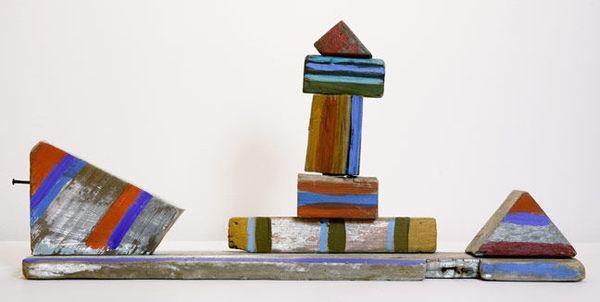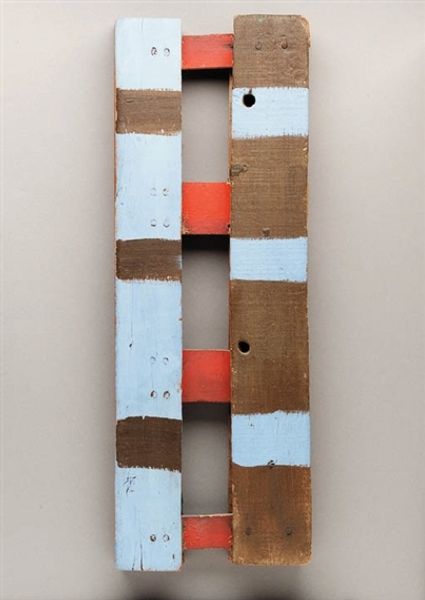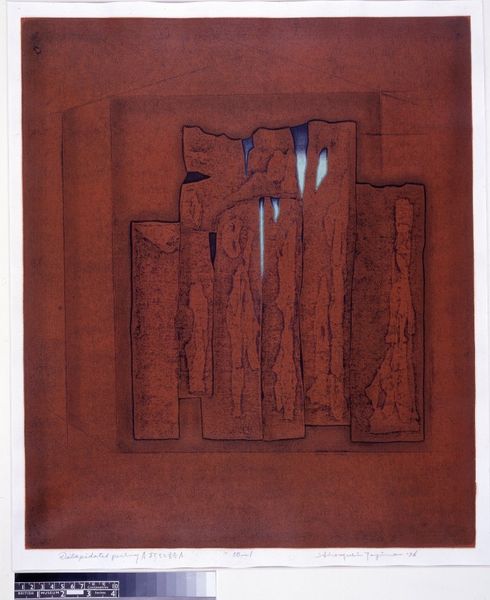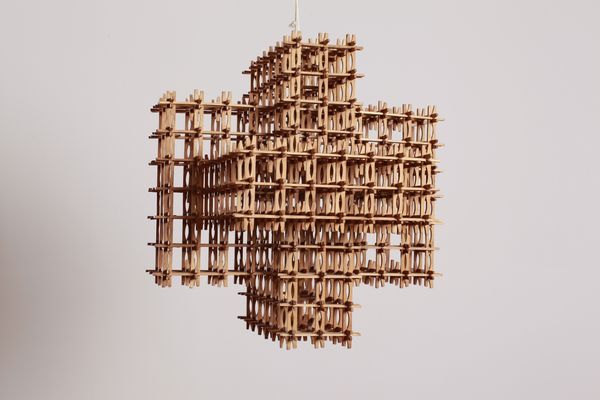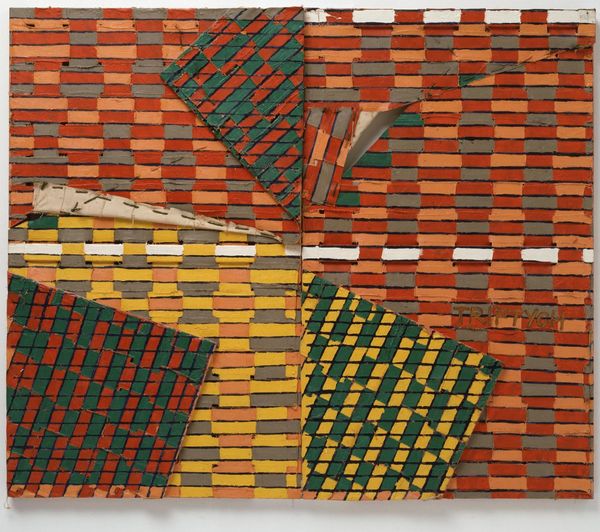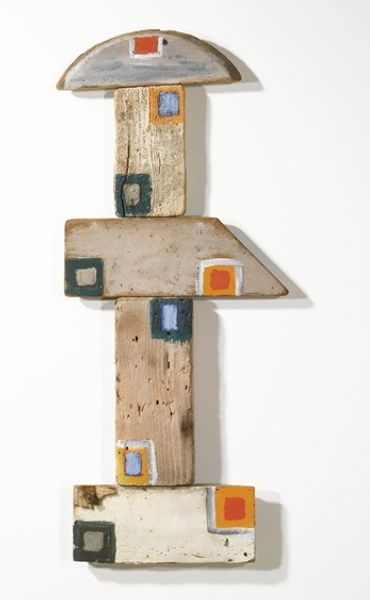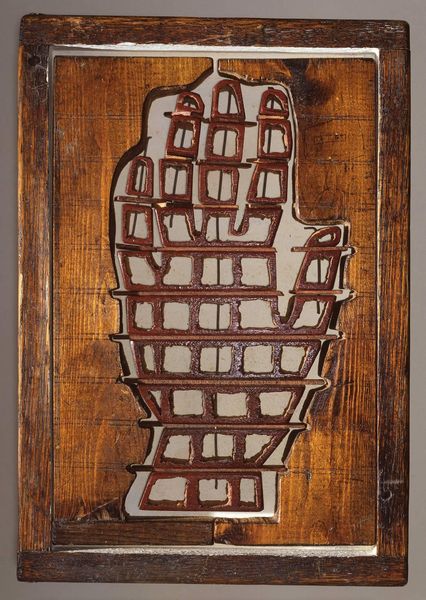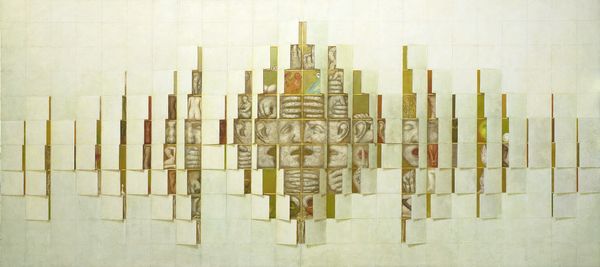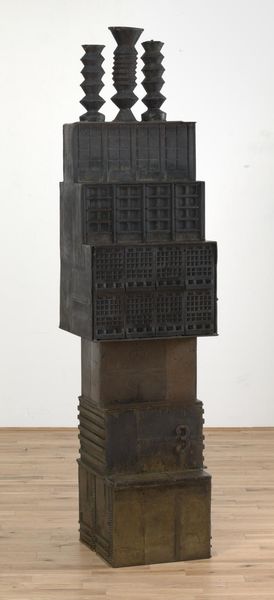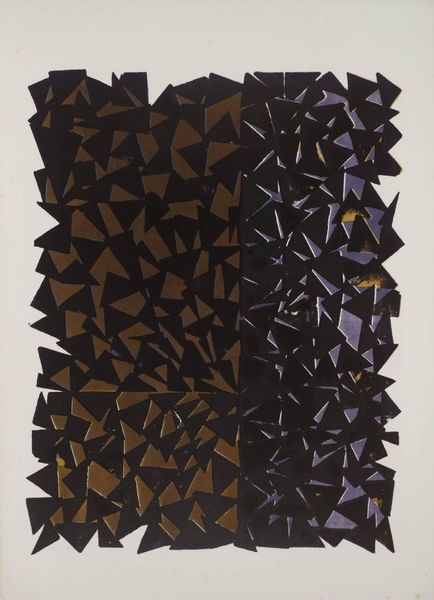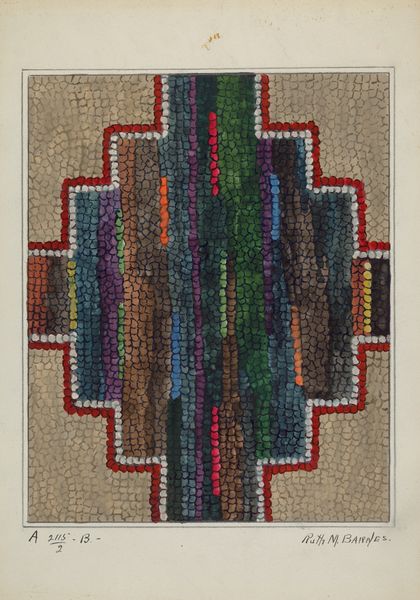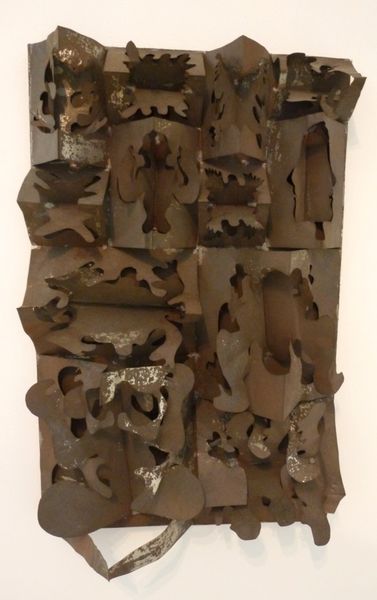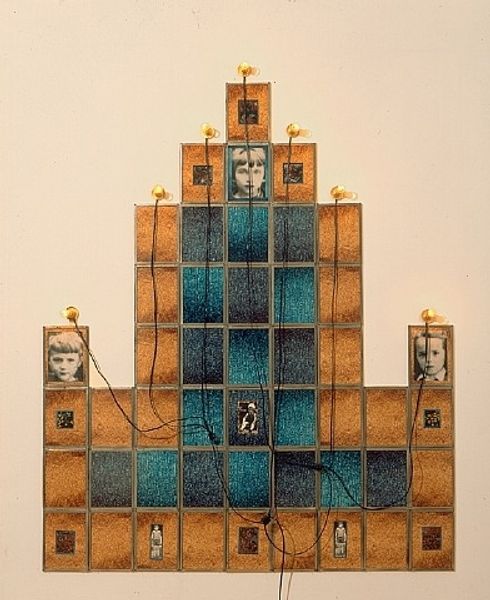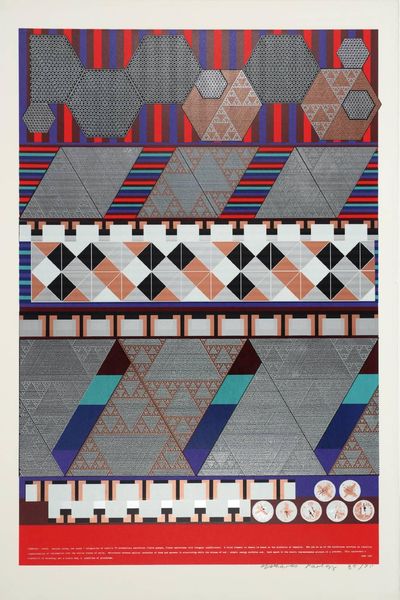
Dimensions: 1937x1205x35mm- variable
Copyright: © Estate of Paul Neagu | CC-BY-NC-ND 4.0 DEED, Photo: Tate
Editor: Here we have Paul Neagu’s *Great Tactile Table*. It's made of mixed media and its date is unknown. I’m struck by its grid-like composition within these unusual, almost coffin-like, shapes. How do you interpret this work? Curator: The biomorphic silhouettes resonate with Neagu’s broader exploration of the individual within societal structures, particularly during a time of political repression in Romania. The grid could symbolize confinement, while the tactile elements offer a form of resistance through sensory engagement. What feelings does the work evoke in you? Editor: That makes sense. I do feel trapped, but I also want to reach out and touch it. Curator: Precisely. Neagu's work often aimed to bridge the gap between the intellectual and the visceral, challenging the viewer's passive role. Its open form invites interpretation, reflecting the ongoing struggle for autonomy. Editor: I see it so differently now. Thanks! Curator: Indeed, engaging with art is about embracing its multifaceted layers.
Comments
tate 10 months ago
⋮
http://www.tate.org.uk/art/artworks/neagu-great-tactile-table-t07750
Join the conversation
Join millions of artists and users on Artera today and experience the ultimate creative platform.
tate 10 months ago
⋮
Like many of Neagu’s ‘palpable objects’, this work contains many small boxes or compartments. These boxes are filled with small metallic objects which the spectator was invited to feel. Great Tactile Table is the largest of a group of sculptures with compartments arranged to form human figures. Neagu called these figures ‘anthropocosmos’, a term combining the Greek words for man and universe. The compartmentalised structure refers to the cellular composition of the human body. It is also a metaphor for larger systems, such as society, which consist of individual yet interrelated parts. Gallery label, September 2016
